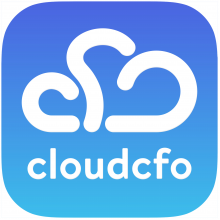Loose-leaf books of accounts – An efficient system for keeping accounting books

Finance & Accounting
223 week ago — 10 min read
If you run, manage or own a business in the Philippines, you need to ensure that your Books of Accounts are being maintained and updated regularly.
This is a mandatory requirement from a compliance perspective. It is also necessary to ensure proper accounting and bookkeeping practices, as well as robust finance management, within your business.
We previously wrote about the three different types of Books of Accounts in the Philippines.
In this article, we examine the second type of books – Loose-leaf Books of Accounts – in much more detail. We also explain how to apply for Loose-leaf Books of Account and the various compliance requirements.
As always, feel free to contact us if you are looking to create efficiencies and enable optimization across your company’s finance function!
Why does a company need to keep books of accounts?
First off – Why does a business even have to keep Books of Accounts?
Good question! There are three primary reasons:
1. Compliance
Any corporation, company, sole proprietorship, partnership, or individual required to pay tax in the Philippines must maintain books of accounts under Philippine law. The BIR can investigate a company at any stage and for any reason. One of the key areas that BIR officers will want to examine first is the Books of Account of the company it is investigating. If a business is not properly maintaining Books of Accounts, the BIR can impose financial penalties.
2. Audited Financial Statements (AFS)
Every year, businesses in the Philippines must submit financial statements relating to the previous year’s financials. An auditor must audit the financial statements before submission. If a company is not maintaining books of accounts during the year, it will be very difficult to complete the audit process.
3. Finance management
In short, it will be almost impossible to understand the true financial performance of your business if you are not performing accounting and bookkeeping. Without Books of Accounts, it will be difficult to track sales margins, monitor operating costs, determine the true value of your assets and liabilities, and importantly, understand how much money the business is actually generating! Without accounting books, it will be very hard to generate financial reports and get real financial intelligence!
Types of Books of Accounts in the Philippines
In a previous explainer on Books of Accounts, we outlined the differences between the various types of Books that businesses in the Philippines can use to perform their accounting and bookkeeping requirements.
While you can also feel free to check out that explainer (click above), for ease, below is a short recap:
- Manual Books of Accounts: The company uses BIR-approved/stamped hard-copy ledgers and journals. Accounting transactions are encoded entirely by hand.
- Computerized Accounting System (CAS): This is where a computer system generates the books/accounts. Transactions are recorded, and reports are generated using a digital or computerized accounting system. The actual computerized accounting system must first be approved by the BIR (after in-depth examination) before it can be used.
- Loose-Leaf Books of Accounts: See below!
What exactly are Loose-leaf Books of Accounts?
Loose-leaf Books of Accounts are one of three BIR-approved systems for maintaining your company’s books. It is a type of mid-way system that lies between the Manual Books and the CAS (see above).
What does that mean? It means that Loose-leaf Books of Accounts are not fully manual and not fully digital – it is a hybrid mix of both!
Business transactions can be recorded and encoded using a digital or computer-based accounting system during the financial year. Then, at the end of every year, the company must print out the ledgers and books from the accounting system, have them bound together (under a specifically approved BIR format), and then submit the bound books physically to the BIR.
According to the BIR, Loose-leaf Books of Accounts are still technically a “manual” form of maintaining company books in the Philippines.
Accounting solutions for Loose-leaf books of accounts
So what kind of online solutions or systems can be leveraged by a company when keeping Loose-leaf Books of Accounts?
In short, it should be an accounting system that has the functions and facilities to record and track bookkeeping transactions and, importantly, can align correctly with the local Philippines tax and compliance framework. For example, the ability to efficiently capture and apply withholding tax would be an important feature!
Watch: Withholding Taxes for SMEs
When companies transition to a digital accounting system to manage their finances, we would always recommend using a cloud-based accounting solution.
Here are just some of the benefits of using a cloud accounting solution
QuickBooks and Xero are just some of the accounting solutions that CloudCfo recommends and uses with our clients. Check out one of our previous articles, which explains what to consider when identifying which cloud-accounting solutions would work best for your business.
Finally and importantly, in contrast to the CAS Books of Accounts (see above), for Loose-leaf Books of Accounts, the accounting solution does not have to be registered with and approved by the BIR (although the format of the printed books do). This a big advantage of Loose-Leaf Books as the BIR approval system for accounting solutions can be quite extensive.
Permit to use
In order to be able to use Loose-leaf Books of Account, a business must first apply to their local BIR Revenue District Office, or RDO, for permission. The permission, if approved, comes in the form of a Permit to Use Loose-leaf Books.
The application for the Permit to Use Loose-leaf Books of Accounts will require, at a minimum, the following documents:
- BIR Form1900 (in duplicate original)
- Sample format and print-out template which the company intends to use.
- Sworn Statement of the company specifying the type of books that will be used and submitted.
- Sworn Statement of the company confirming their intention and commitment to file the required books with the BIR at the end of each taxable year.
- If an Authorized Representative of the company is submitting the filing, a Board Resolution nominating the representative to file must be submitted. This could also be in the form of a Secretary’s Certificate. This should also be accompanied by a Government ID of the Authorized Representative.
- Payment or confirmation of payment of the company 0605 Annual Registration Fee (PHP500).
Annual BIR compliance requirements
Where a company has applied to the BIR to use Loose-leaf Books of Account and where they have received their Permit to Use, the company must adhere to specific annual compliance requirements.
Companies are required to print out their books/accounts from the accounting system using the BIR-approved format, bind them and then submit them to the BIR within 15 days of the end of the taxable year. As such, companies are required to file their Loose-leaf Books with the BIR on or before 15 January of the following year.
Under the Loose-leaf registration, the following are the specific books that are required to be printed out, bound, and filed with the BIR each year:
- General Journal
- General Ledger
- Sales Book
- Purchase Book
- Cash Disbursement Book
- Cash Receipt Book
While the requirements for submission can sometimes change across municipalities and RDOs, there are a number of additional general requirements that must be submitted at the time of filing, including:
- The Company’s Permit To Use Loose-leaf
- A Certificate under oath from the company confirming the accuracy of the information included in the submitted Loose-leaf Books and confirming the name and type of each of the books being submitted as well as the number of pages in each book.
- A Secretary’s Certificate confirming that the company has approved an Authorized Representative to submit the Loose-leaf Books on behalf of the company (if required).
CloudCfo – Outsourced accounting and bookkeeping services
CloudCfo offers online accounting, bookkeeping, and tax compliance services for startups and SMEs in Manila and across the Philippines.
Our goal is to increase efficiency, automation, and transparency across the finance function of our clients. The result? Our clients receive accurate financial data on a regular basis, which they can rely on to make important commercial decisions about their business!
If you want to move your company’s finance function online, contact our team of expert accountants and bookkeepers directly via enquire@cloudcfo.ph
To explore business opportunities, link with me by clicking on the 'Invite' button on my eBiz Card.
Disclaimer: The views and opinions expressed in this article are those of the author and do not necessarily reflect the views, official policy, or position of GlobalLinker
Posted by
CloudCfo IncNow is the time to outsource your finance function! Outsourcing to CloudCfo gives your business access to tax compliance experts, financial advisers, experienced accountants,...
View CloudCfo 's profile
Most read this week













Comments
Share this content
Please login or Register to join the discussion